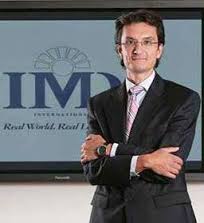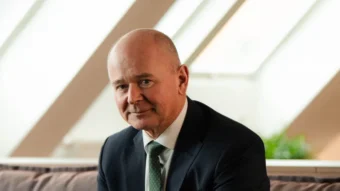
Professor and Competitiveness expert at IMD, Arturo Bris, is listing up Scotland’s chances of competing in the global economy in this interview with Nordic News. In this interview Arturo Bris, Professor of Finance and Director of the IMD World Competitiveness Center, analyzes how independence would affect the competitiveness of Scotland,the rest of the UK, and region in other countries. Scotland voted no to leave the British Union Wednesday this week.
-Would an independent Scotland be more competitive than the UK today?
-I doubt it. -It’s true that our research on competitiveness has shown a relative advantage of small nations over big countries. The reason is that government spending, infrastructure investment, and fiscal policy tend to be more efficient. Besides, small countries are usually more successful in their long-term economic strategies because execution is easier. Among the ten most competitive economies in the 2014 IMD World Competitiveness Rankings<http://www.imd.org/wcc/news-wcy-ranking/>, six are relatively small. -And yes, there is a global trend towards smaller and more efficient government entities. The cantonal governments in Switzerland, the federal structure of the United States, and Germany are examples of governments being rather close to their citizens. At the same time, there is a negative attitude in Europe towards the supranational, European-wide institutions that are seen as neglectful of the everyday needs of the population. -So on the face of it the prospects for Scotland look good. But if it left the UK, it would most probably lose some of its important financial services sector. And although Scotland is rich in natural resources, we do not see natural resources as a source of competitiveness in the 21st century. African countries and some countries in Latin America, for instance, are rich in natural resources yet lack competitiveness because of inadequate investment in infrastructure,both physical and intangible.
-If Scotland becomes independent how would that affect the competitiveness of the UK?
-Not much. -The UK is a very interesting country because it ranks 16th out of 60 in the IMD World Competitiveness Rankings. This may seem low given the relative weight of the UK in the world economy. However, we must take into account that the main driver of UK competitiveness is currently not Scotland but the City of London and its financial sector. Without this sector-some say-the UK would not be more of an economic powerhouse than other lower-ranked European countries such as Portugal or Austria. -About 10% of the UK’s GDP comes from the financial sector, and another 5% comes from related services. In terms of employment, banking and related services employ 7% of the country’s workforce. In absolute terms, related services employ 2 million people in the UK, and only 50,000 of those are located in Scotland. If-as the big financial institutions have stated-banks moved away from an independent Scotland and into England, the competitiveness of the UK would not be affected. It might even improve.
-Do you think other regional separatist movements, such as in Catalonia, Venice, Sardinia, and Quebec, are motivated by competitiveness?
-In these examples, separatism has originated in regions that are richer than their countries. However, politicians in these regions know that the main source of wealth and prosperity comes from trading with other regions within the country. The separatist movement in Catalonia is very much aware of the massive competitive loss that would result from independence. Quebec voted against independence from the rest of Canada for the same reason. And at a national level, Germany wants to stay in the European Union because, being the richest economy, it benefits to a large extent from exporting to other countries in the EU. -I think that separatism nowadays is motivated by the need to have a unique identity in a more globalized world. As national borders disappear, we want to create our own local, narrower borders that guarantee our uniqueness and differentiation, says Arturo Bris days before the Scottish vote for Independance.
http://www.imd.org/about/facultystaff/bris.cfm




